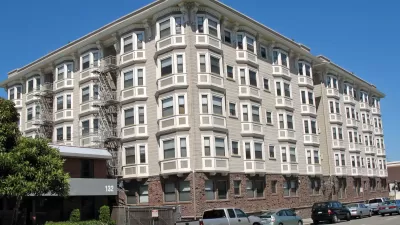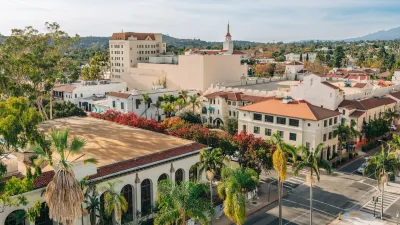Balance between state and local control and between private and public solutions are necessary for meaningful improvement in housing affordability, according to planning activist and affordable housing developer Murtaza Baxamusa.

In this op-ed derived from testimony given for a panel on affordable housing solutions, affordable housing advocate and developer Murtaza Baxamusa argues in favor of a broad spectrum and balanced strategy. Among other things, in the op-ed, Baxamusa:
- Surveys new legislation – state and local, passed and proposed, e.g.,
- Senate Bills 1 & 2, Measure JJJ in LA, SB 1505, SB 35.
- Cautions against blaming CEQA for housing shortages and notes its importance for community involvement and acceptance, and for improving projects.
- Notes importance of preserving existing housing.
- Argues that many of the existing strategies merely fuel speculation and replace more affordable housing stock with luxury housing.
- Cautions against use of the vague terminology of “workforce housing” and “middle income housing” as watering down affordability requirements.
- Cautions that incentive based strategies must be paired with firm exactions.
Overall, Baxamusa cautions that one sided supply-side solutions fuel “rent seeking” opportunism by speculators, that depletes rather than creates affordable housing. Incentives to private developers must be paired with firm requirements and exactions. For more detail, please see the source article.
FULL STORY: How the state can address California’s housing crisis

Planetizen Federal Action Tracker
A weekly monitor of how Trump’s orders and actions are impacting planners and planning in America.

Map: Where Senate Republicans Want to Sell Your Public Lands
For public land advocates, the Senate Republicans’ proposal to sell millions of acres of public land in the West is “the biggest fight of their careers.”

Restaurant Patios Were a Pandemic Win — Why Were They so Hard to Keep?
Social distancing requirements and changes in travel patterns prompted cities to pilot new uses for street and sidewalk space. Then it got complicated.

Platform Pilsner: Vancouver Transit Agency Releases... a Beer?
TransLink will receive a portion of every sale of the four-pack.

Toronto Weighs Cheaper Transit, Parking Hikes for Major Events
Special event rates would take effect during large festivals, sports games and concerts to ‘discourage driving, manage congestion and free up space for transit.”

Berlin to Consider Car-Free Zone Larger Than Manhattan
The area bound by the 22-mile Ringbahn would still allow 12 uses of a private automobile per year per person, and several other exemptions.
Urban Design for Planners 1: Software Tools
This six-course series explores essential urban design concepts using open source software and equips planners with the tools they need to participate fully in the urban design process.
Planning for Universal Design
Learn the tools for implementing Universal Design in planning regulations.
Heyer Gruel & Associates PA
JM Goldson LLC
Custer County Colorado
City of Camden Redevelopment Agency
City of Astoria
Transportation Research & Education Center (TREC) at Portland State University
Camden Redevelopment Agency
City of Claremont
Municipality of Princeton (NJ)





























